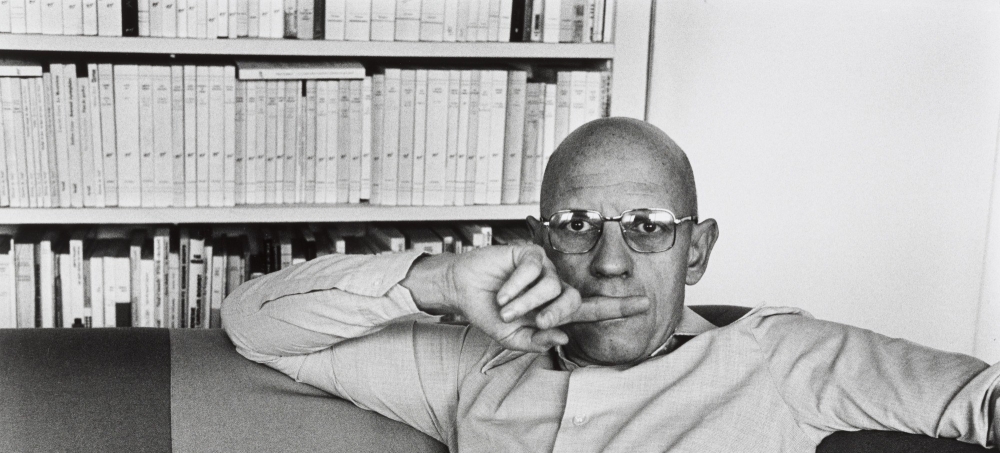
To cite this article: Sturt-Schmidt, James (2018). Critical Theory, Poststructuralism and Postmodernism, The Millennial [Online], Available at: (this page URL).
Agger’s (1991) article examines the most notable contributions of critical theory, poststructuralism and postmodernism to sociology. It explores the arguments these three schools of thought put forward, critiquing positivism and its shortcomings, and offering new ways to theorise and study within the social sciences. The article does not put forward any data, but is rather a purely theoretical piece which draws upon, describes and succinctly compares the main facets of the three perspectives, and discusses their implications for the ways in which sociologists “think about the boundaries and territoriality of their discipline” (Agger, 1991; p105.) This essay aims to review Agger’s (1991) article, exploring its content and comparing it with other literature.
Beginning with critical theory, Agger (1991) states, “the most lasting methodological contribution of critical theory to social science is the way it attunes empirical social researchers to the assumptions underlying their own busy empiricism” (p. 111). Citing Horkheimer and Adorno’s (1972) Dialectic of Enlightenment, Agger (1991) argues that avoiding values when conducting research can actually be the strongest value commitment of all, essentially exempting the researcher from self-reflection and self-criticism of their claims. Despite offering a rather comprehensive exploration of critical theory’s key contributors and their theories, Agger (1991) fails to highlight the difficulty and subjectivity involved in defining critical theory, due to the variety of theories perceived to pertain to this school of thought, the fact that the critical tradition is constantly evolving and changing, and the fact that many of the theorists themselves try to avoid specificity in order to avoid the “production of blueprints of sociopolitical and epistemological beliefs” (Kincheloe and McLaren, 2002; p. 89).
Moving on to poststructuralism, Agger (1991) firstly highlights that one cannot cleanly separate poststructuralism from postmodernism. He however suggests that – at least within the article – poststructuralism be understood as a theory of knowledge and language, and postmodernism as a theory of society, culture and history (p. 112). In his overview of poststructuralism, Agger (1991) draws upon the work of Jacques Derrida (1976, 1978, 1981, 1987), exploring Derrida’s deconstruction, and explaining that readers help give meaning to texts due to having their own differential significances that they attach to words. According to Agger (1991), Derrida’s work – particularly deconstruction – “subverts the false simplicity and closure claimed by positivists” (p. 114). He goes on to claim that Derrida’s relevance to social science is ‘potentially enormous’ (ibid.), encouraging methodology to be seen as rhetoric, “encoding certain assumptions and values about the social world” (ibid.). He claims, “deconstruction can help reveal the values and interests suppressed far beneath the surface of science” (ibid.) thus making science more democratic, politicised, and open to the scrutiny of individuals outside the scientific community. Agger (1991) highlights that it is generally difficult for sociologists to recognise the usefulness of deconstruction due to a tendency for deconstructors / poststructuralists to reject all objective analysis, which can be seen as a limitation of poststructuralism’s contribution to sociology. He however concludes that Derrida’s program of deconstruction is a useful contribution to the interpretation of cultural and linguistic forms.
Similarly to Agger (ibid.), Lemert (1994) identifies the sociological implications of poststructuralist thought – largely based on its discursive roots – arguing that poststructuralist social theory transgresses “the subject matter it interprets by constantly reflecting on the necessity and nature of interpretation itself” (p. 269). However, Lemert’s (1994) analysis goes beyond that of Agger (1991), in his analysis of the sociological application of poststructuralist thought. For example, Lemert (1994) highlights the problematic nature of the proposal that discourse be both the subject matter and the medium of sociological analysis, as, he argues, “A discursive sociology […] would require an uprooting of deeply ingrained convictions” (p. 269), such as the belief in the dichotomy of subject-object and other classic dualities, “loyalty to the ideal of sociology as a well-founded, scientific source of knowledge” (ibid.) and the expectation that ‘good’ work will create valuable political and intellectual results. Lemert (1994) takes these questions further, providing important points of reflection for the consideration of how poststructuralist thought can be integrated into sociology.
In his analysis of postmodernism, Agger (1991) suggests that it is easier to identify the contribution of this perspective to sociology since it “makes evident connections with mainstream social science” (p. 115), especially in relation to cultural and discourse analysis, social control and sexuality. Calling upon the theory of Lyotard (1984) – who Agger calls “the most explicit philosophical postmodernist (1991; p. 116) – Agger explains that Lyotard’s postmodernism rejects grand narratives such as Marxism, that seek to explain the world through patterned interrelationships, and argues that one “cannot tell large stories about the world but only small stories from the heterogeneous “subject positions” of individuals and plural social groups” (ibid.). This is echoed in Fraser and Nicholson’s (1994) analysis of postmodernism, where they argue, “’grand narratives of legitimation’ are no longer credible” (p. 245). Agger (1991) further describes postmodernists’ distrust of radicalism, and subsequent preference of “people who engage with the world from the irreducible perspectives of their own experience” (ibid.). Like poststructuralism, Agger (1991) identifies postmodernism’s general mistrust of any social science that attempts to conceal its own investment in a particular worldview.
Drawing upon all three of the perspectives explored in the article, Agger (1991) identifies the shared rejection of ‘presuppositionless representation’, and their assertion that every knowledge has a historic and cultural nature. He argues that the theories are often ignored by empiricists, but asserts that “buried deep beneath the surface of the writings” (p. 106), the theories have great relevance to methodological and empirical work. The main body of the text unpacks the perspectives in question, highlighting their founders and main contributors and key aspects of the theories, before going on to summarise their relevance for methodology, research and the formation of concepts within the discipline of sociology. Agger (1991) argues, “above all, critical theory, poststructuralism, and postmodernism are effective as critiques of positivism” (Stockman, 1984, cited in Agger, 1991).
To conclude, Agger’s (1991) article raises important methodological questions for sociologists to consider. Not only does the article lead one to question if positivist thinking is holding back the social sciences from evolving beyond assumptions of objectivity and value-free research, but also leaves the reader considering what the alternative would look like. Is belief in sociology as a discipline itself a limitation when conducting research? Encouraging researchers not to engage with philosophical reflection on the nature of the language they use, their assumptions about the ‘reality’ they perceive before them, and the meaning-making processes that come after publication, in the minds of their readers. The article is comprehensive – but not exhaustive – in its summary of the three perspectives it examines, and is a useful addition to the literature available on these perspectives, how they can be integrated into the social theory, and their implication for methodology.

References
Agger, B. (1991). Critical Theory, Poststructuralism, Postmodernism: Their Sociological Relevance, Annual Review of Sociology, 17, pp. 105 – 131.
Derrida, J. (1976). Of Grammatology. Baltimore: John Hopkins University Press.
Derrida, J. (1978). Writing and Difference. Chicago: University Chicago Press.
Derrida, J. (1981). Positions Chicago: University Chicago Press.
Derrida, J. (1987). Glas. Lincoln, Nebraska: University Nebraska Press.
Fraser, N. and Nicholson, L. (1994). Postmodernism, in Seidman (Ed) The Postmodern Turn: New Perspectives on Social Theory. Cambridge: Cambridge University Press.
Kincheloe, J. L. and McLaren, P. (2002). Rethinking Critical Theory and Qualitative Research, in Zou and Trueba (Ed’s) Qualitative Approaches to the Study of Education. Maryland: Rowman and Littlefield Publishers.
Lemert, C. () Post-Structuralism and Sociology, in Seidman (Ed) The Postmodern Turn: New Perspectives on Social Theory. Cambridge: Cambridge University Press.
Lyotard, J. F. (1984). The Postmodern Condition: A Report on Knowledge. Minneapolis: University Minneapolis Press.
Stockman, N. (1984). Antipositivist Theories of the Sciences. Dordrecht: D. Reidel
